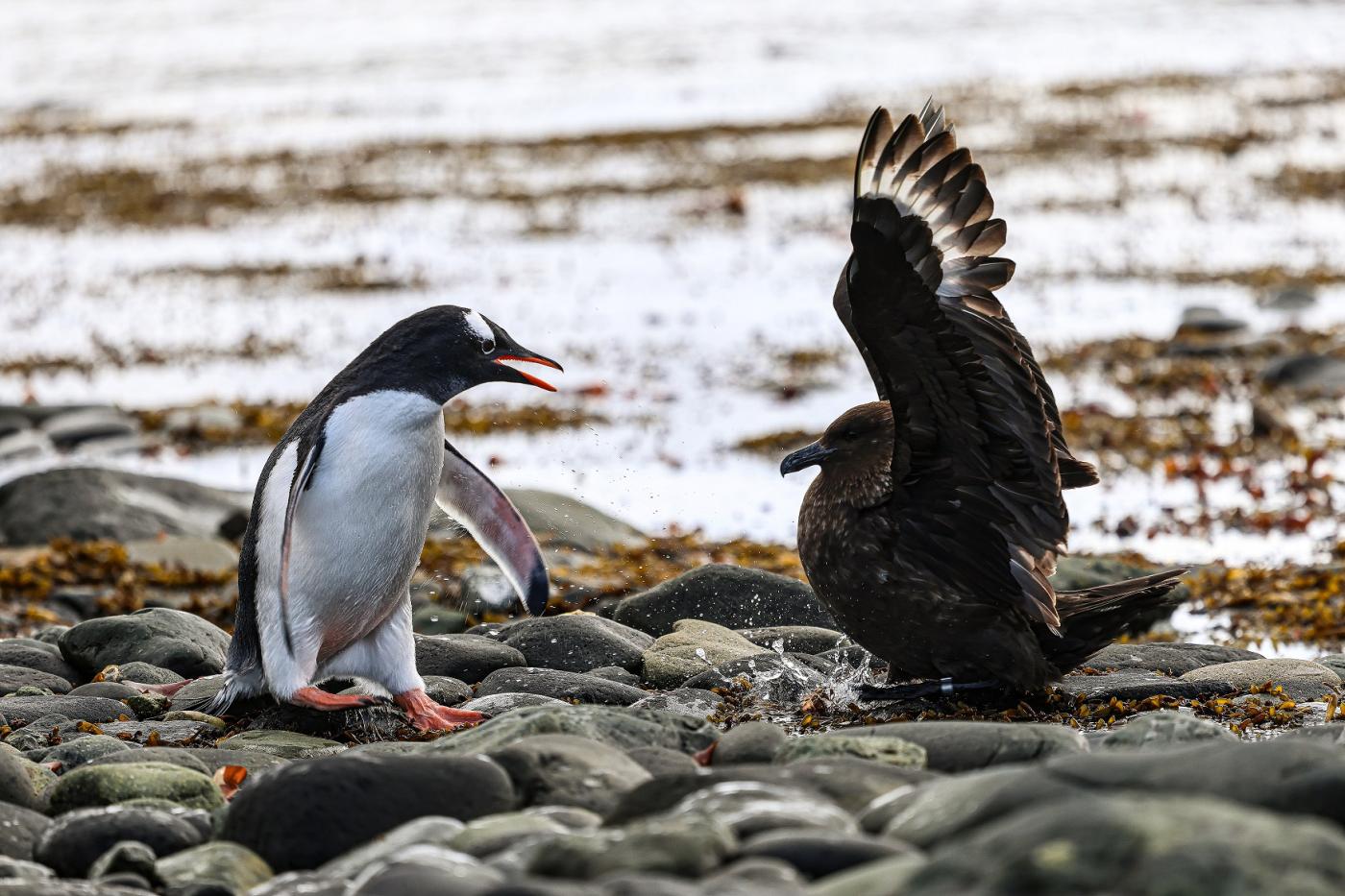Antarctica under ORLEN’s wing - new protected area in cooperation with the Polish Academy of Sciences
ORLEN, in cooperation with the Institute of Biochemistry and Biophysics of the Polish Academy of Sciences (IBB PAS), has launched a project aimed at designating a new Antarctic Specially Protected Area (ASPA) in one of the world’s most remote regions. This groundbreaking initiative marks a milestone in the history of Polish scientific presence on the southern continent, combining research, education, and environmental objectives.
education ecology worldwide news13 may 2025 | 17:13 | Source: Gazeta Morska | Prepared by: Kamil Kusier | Print

fot. Orlen
The five-year program titled Antarctica under ORLEN’s wing seeks to establish a new ASPA to expand the currently limited network of strictly protected areas, which presently covers only about 0.02% of Antarctica. The project will strengthen Poland’s international standing in Antarctic research through a joint effort involving ORLEN, the ORLEN Foundation, and IBB PAS.
– Our involvement in this unique initiative reflects ORLEN’s sustainable development strategy and our commitment to supporting Polish science, deploying innovative technologies, and advancing corporate social responsibility – said Lidia Kołucka, Executive Director of Sponsorship at ORLEN. – Collaboration between business and science opens new avenues for expanding knowledge and creating meaningful initiatives. Antarctica plays a key role in maintaining global climate balance, and we want to support research that contributes to its protection – she added.
At the start of the collaboration, the program will fund the acquisition of specialized equipment, including a Sea Rescue and Assistance vessel and snowmobiles essential for fieldwork in hard-to-reach areas of King George Island. These assets are critical for achieving the project’s goals and ensuring safe operations in the challenging Antarctic terrain.
– The partnership with ORLEN and the ORLEN Foundation, including the provision of specialized equipment, offers new research opportunities for Polish scientists. It will also enhance the safety of researchers from around the world conducting monitoring and studies in the vicinity of the Henryk Arctowski Polish Antarctic Station, which has been managed by IBB PAS since 2012 – said Professor Jarosław Poznański, Director of IBB PAS. – Thanks to their ongoing work, the international community continues to receive invaluable data on glacial melt rates, climate dynamics, and population changes among Antarctic flora and fauna. This collaboration will undoubtedly broaden our understanding of the Antarctic ecosystem and may lead to a more active role for Poland in safeguarding this unique region of the planet – he added.
A vital part of the project will be the biodiversity and birdlife inventory of Important Bird and Biodiversity Areas (IBAs). Bird population studies are a crucial element of early warning systems for climate change. The project will be focused on King George Island, part of the South Shetland Islands in West Antarctica, with special attention to the Destruction Bay area.
– Another key component of the equipment package will be next-generation Unmanned Aerial Systems, commonly known as drones. These will enable surprising discoveries in previously unexplored parts of King George Island. This will help us place these areas under greater protection, shielding them from the growing human presence in Antarctica and preserving them in their natural state for future generations – emphasized project lead Dr. Robert Bialik, Associate Professor at PAS.
Educational activities in Poland will also form an important pillar of the initiative. ORLEN will support the production of a documentary, live project coverage, scientific events, and dedicated school programs. These efforts aim to give students and science enthusiasts greater access to and understanding of this remote and captivating region.
Antarctica encompasses the Antarctic continent and the surrounding waters of the Southern Ocean. The Antarctic Treaty, which governs the region, designates it for peaceful and scientific purposes, banning resource extraction and military activity. Research conducted in Antarctica is vital to understanding global climate systems and environmental processes. Poland, as a signatory of the Treaty and one of the 29 decision-making countries, plays an active role in its governance.
ORLEN is an integrated multi-energy company supplying energy and fuels to millions across Europe, especially Central Europe. Given its scale and strategic importance, ORLEN supports the region’s energy transition and decarbonization processes. A core element of its sponsorship strategy is close collaboration with the Polish scientific community and support for cutting-edge research.
The Institute of Biochemistry and Biophysics of the Polish Academy of Sciences is one of Poland’s leading research institutions, conducting fundamental research in exact, natural, medical, and health sciences, particularly in biochemistry and biophysics. The Institute also carries out interdisciplinary studies in polar regions and is committed to training the next generation of researchers through its doctoral programs.
The ORLEN Foundation supports initiatives in education, environmental protection, and social engagement. Its programs include scholarships for young talents, science outreach activities, and efforts to promote safety and youth empowerment. Through these initiatives, the Foundation plays a vital role in advancing socially and ecologically responsible development.
Buy us a coffee, and we’ll invest in great maritime journalism! Support Gazeta Morska and help us sail forward – click here!
Kamil Kusier
redaktor naczelny
comments
Add the first comment
see also
Advanced ROV trials conducted at CTO to validate subsea technologies for offshore applications
University of Gdańsk and PGZ Naval Shipyard join forces for innovation and security
Naval Academy in Gdynia and Ecole Navale join forces. A new phase of international military cooperation
Shipbuilding industry is awesome. Stability. When shifting mass takes control away
Polish Naval Academy and Institute of Fluid-Flow Machinery establish research partnership
PIRANIA underwater inspection vehicle: Gdańsk University of Technology and Radmor join forces
Gdynia honors top athletes of 2025 and century-old sports legends
Polish Naval Academy students advance unmanned maritime systems
Historic refit of Dar Młodzieży carried out in Szczecin by Net Marine Group
Kuyavian-Pomeranian Sailing School to Launch with €3.5 Million Training Vessel
ADVERTISEMENT
ADVERTISEMENT